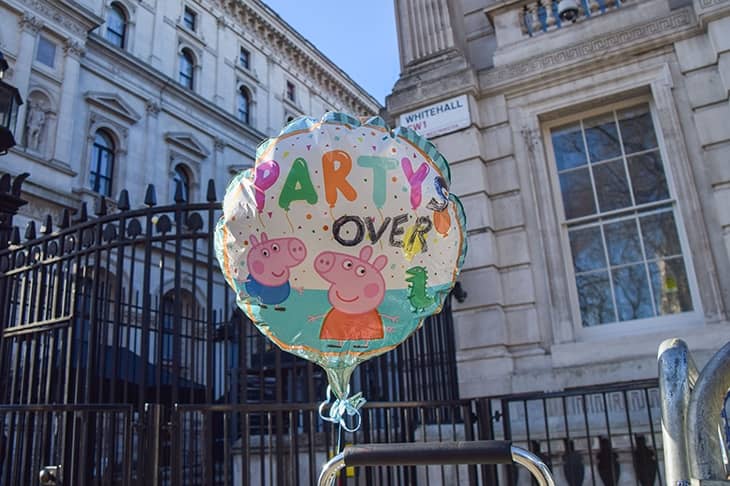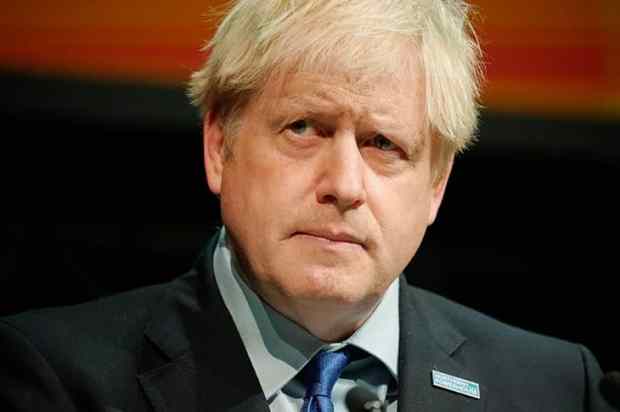When a political party is hit by a crisis, the tendency these days is for both the politicians and their supporters to pretend that there isn’t a crisis at all, hunker down inside a comfortable state of denial and blame it all on a hostile media. To a degree, this has always happened — but social media has unquestionably exacerbated the process, to the extent that at any one moment a vast number of people are living under a bizarre delusion from which only much later do they emerge blinking into the sunlight. The polarising effect of social media and its echo–chamber properties have led to it becoming little more than a vast conduit for confirmation bias, and this informs the way in which politicians react to crises. This is certainly one reason why Labour, under Jeremy Corbyn, resisted the charge of anti-Semitism for so long (another is that quite a few of its members were, er, anti-Semites, of course). The whole thing was a plot against the leadership orchestrated by Corbyn’s internal opponents and a gleeful media: it was, in fact, no story at all. On Twitter and on Facebook this was the line taken by the Corbynites, and they were not lying or dissembling, they actually believed it. Everybody whom they knew on social media sites told them, you see. Hell, there were even a few Labour Jews who would say the same thing. It was all a vicious confection with no basis in reality and the voters didn’t care about it one bit.
Conservatives — or at least a large number of them — seem to be gripped by a similar delusion right now. The right-wingers I know on Facebook all parrot the same tune — that partygate is entirely a media concoction and that we should all shut up about it because the public doesn’t care. Once again, this view percolates its way up and the politicians surrounding the Prime Minister trot it all out and in the end it becomes Boris Johnson’s chief mode of defence. I have heard them all, on the radio, blaming the BBC’s weird obsession, insisting that the public is really interested in the new jobs being created at Tilbury freeport and the massing of Russian troops on the Ukraine border. It is, to me, a weird state of mind — and so for those of you who do not buy into this conspiracy theory rot, what follows may be a case of stating the bleeding obvious, for which apologies.
The latest opinion polls put the Conservatives about ten percentage points behind Labour, which, were there an election right now, would leave Keir Starmer tantalisingly close to an overall majority. The situation in the so-called red-wall seats is even worse: the Tories trail by an average of 11 points and a maximum of 19. All but three of those captured seats would be lost, according to a poll for Channel 4 News on 19 January. In both cases, nationally and in the red-wall seats, voters switching from Tory to Labour (and in the south to the Liberal Democrats) state that partygate and Johnson’s leadership are the two issues which have convinced them to change their voting intentions. In other words, partygate is not a chimera and itdoes matter to the public. Indeed, Johnson’s multiple deceptions and obfuscations have had a graver effect upon his party’s poll ratings than any other issue since he became Prime Minister two years ago. It is not simply an important issue, then, but the most important issue. It is about honesty, trust, one-rule-for-them and so on. It is an election winner for the Labour party.
Why should this be so? A couple of weeks ago I suggested that much of the public’s fury was in a sense an anger at itself for having abided by the extraordinary restrictions imposed during that first lockdown: I hear this in the subtext of everyone I speak to who made those many horrible sacrifices two years ago. But the public cannot vote against itself. So far as the opinion polls are concerned, the highpoint of Johnson’s leadership of this country was precisely March 2020, when we were shepherded into lockdown. At that point — and indeed into April — the Tories stood at 51 per cent in the polls. The country believed that the Prime Minister was in earnest, was doing the best he could for our country, and there was sympathy for him too, because he almost died of this new, supposedly terrifying virus.
This is the second point to make, of course — that the virus was terrifying and its early death toll was uniquely large. We believed that the government was taking it seriously, regardless of the mistakes being made. It is now revealed at its highest echelons that the government was not taking it seriously at all. The strictures imposed on the rest of us did not apply to it. The privations endured by the public were severe, especially for those living in large towns and cities. They were dutifully followed by the vast majority.
That is why partygate is important. It is seen by the voters as a grotesque betrayal, and that squandered trust is not recoverable. It may well be the case that the Prime Minister has got the ‘big’ decisions right — Brexit, the vaccine rollout, bravely ignoring the Sage scientists in December and freeing us from restrictions, even being bullish and hawkish over Ukraine. But it does not matter a jot if the trust has been lost. More to the point, a party which cannot bring itself to accept that a crisis is real and present and important is — like Jeremy Corbyn’s Labour — en route to an election defeat. The Conservative party needs a new leader and the sooner it gets one, the sooner this damage might be repaired. Partygate is every bit as lethal for Boris Johnson as Watergate was for Richard Nixon.
Got something to add? Join the discussion and comment below.
Get 10 issues for just $10
Subscribe to The Spectator Australia today for the next 10 magazine issues, plus full online access, for just $10.
You might disagree with half of it, but you’ll enjoy reading all of it. Try your first month for free, then just $2 a week for the remainder of your first year.















Comments
Don't miss out
Join the conversation with other Spectator Australia readers. Subscribe to leave a comment.
SUBSCRIBEAlready a subscriber? Log in